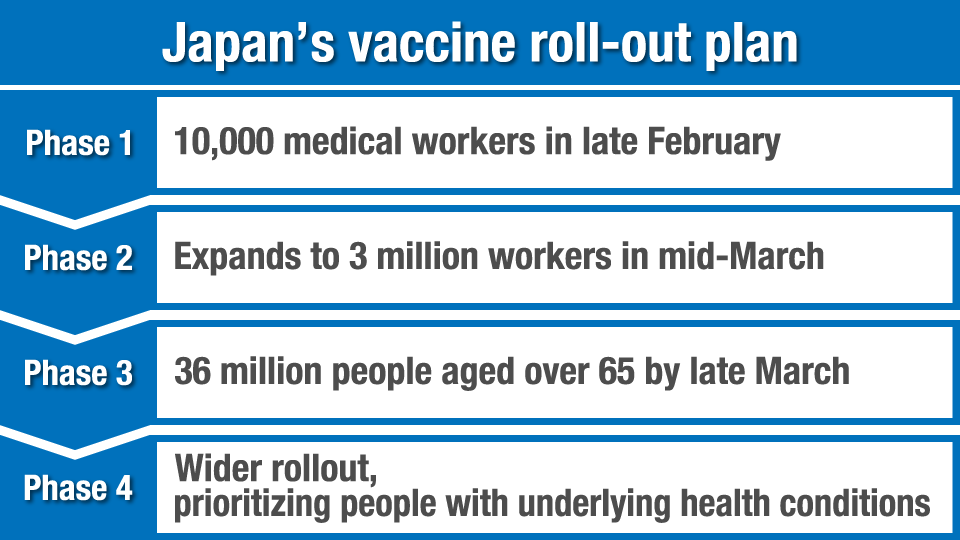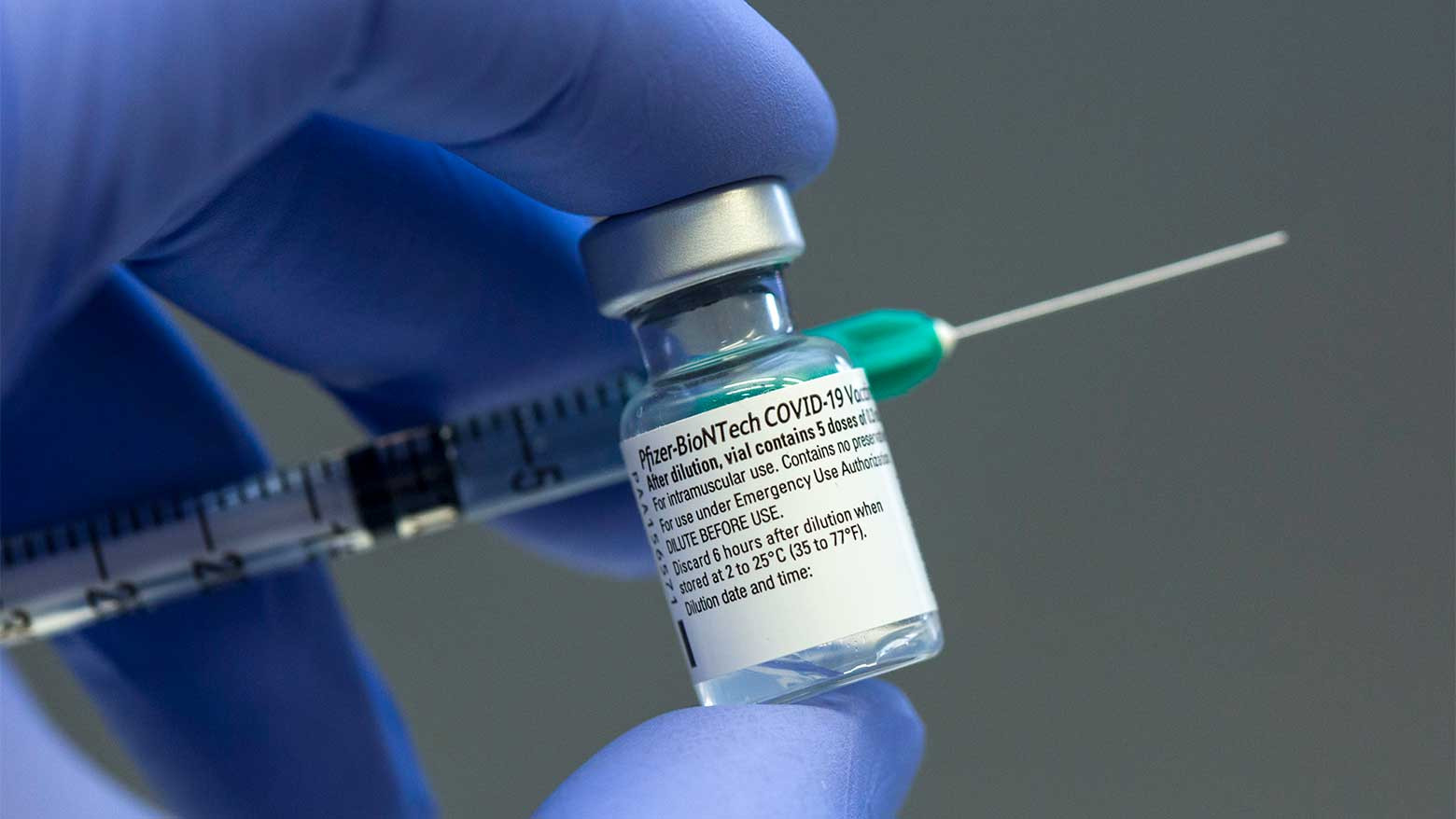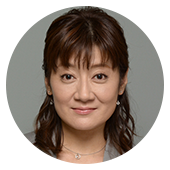In a Diet policy speech last week, Prime Minister Suga Yoshihide acknowledged that vaccines are the key to containing the virus. He suggested the government will aim to start the rollout by late next month, after screenings for safety and effectiveness. He placed Regulatory Reform Minister Kono Taro in charge of the operation.
Medical workers are first in line, followed by the elderly in late March, and then those with underlying conditions. The health minister says vaccines could be limited to people aged 16 or older.
The government has signed a contract with US pharmaceutical giant Pfizer to receive about 144 million doses, or enough to vaccinate 72 million people. It's yet to be approved, but officials say they've agreed to as fast a rollout as possible.
Japan has a population of about 125 million people. Additional contracts with US firm Moderna and Britain's AstraZeneca for tens of millions of shots are already in place, but more are being secured.

Uncertainty hinders preparations
Local government officials are also busy making preparations. Komae, a city in western Tokyo with about 80,000 residents, has set up a special taskforce to secure facilities and medical professionals. The Pfizer vaccine needs to be kept at about minus 75 degrees Celsius, and Moderna's at minus 20 degrees Celsius. Obtaining refrigeration equipment for storage and transportation is proving especially tricky. Moreover, the city does not yet know which company's it will receive, or how many.
Nakagawa Toshio, the head of the Japan Medical Association, conveyed the scale of the challenge to reporters early last week. "This is the first vaccination program of its kind. Success depends on how well we collaborate with the central and local governments, and doctors on the ground."
Survey points to widespread anxiety
Logistics are one thing. Reassuring a large portion of the population is quite another. Many people are worried about the safety of the vaccines, given how fast they were developed. In NHK's latest opinion poll, half of the respondents said they wanted one, but 38 percent said they did not.
Dr. Ishii Ken, who works at the University of Tokyo's Institute of Medical Science, says the public sector must play a bigger role in disclosing information. "People seem to be fearful about the vaccines, because they're brand-new. Officials must thoroughly explain the scientific evidence, such as side-effects. Letting the public know about effectiveness must be done with speed and transparency."
The government is taking heed by posting information online about the efficacy of the vaccines against new strains of the coronavirus, and also about how they confirmed them to be safe.
Eleven of Japan's 47 prefectures are currently under a state of emergency, and the medical system in some areas is close to breaking point. Vaccines are evidently on the way, but the clock is ticking.

